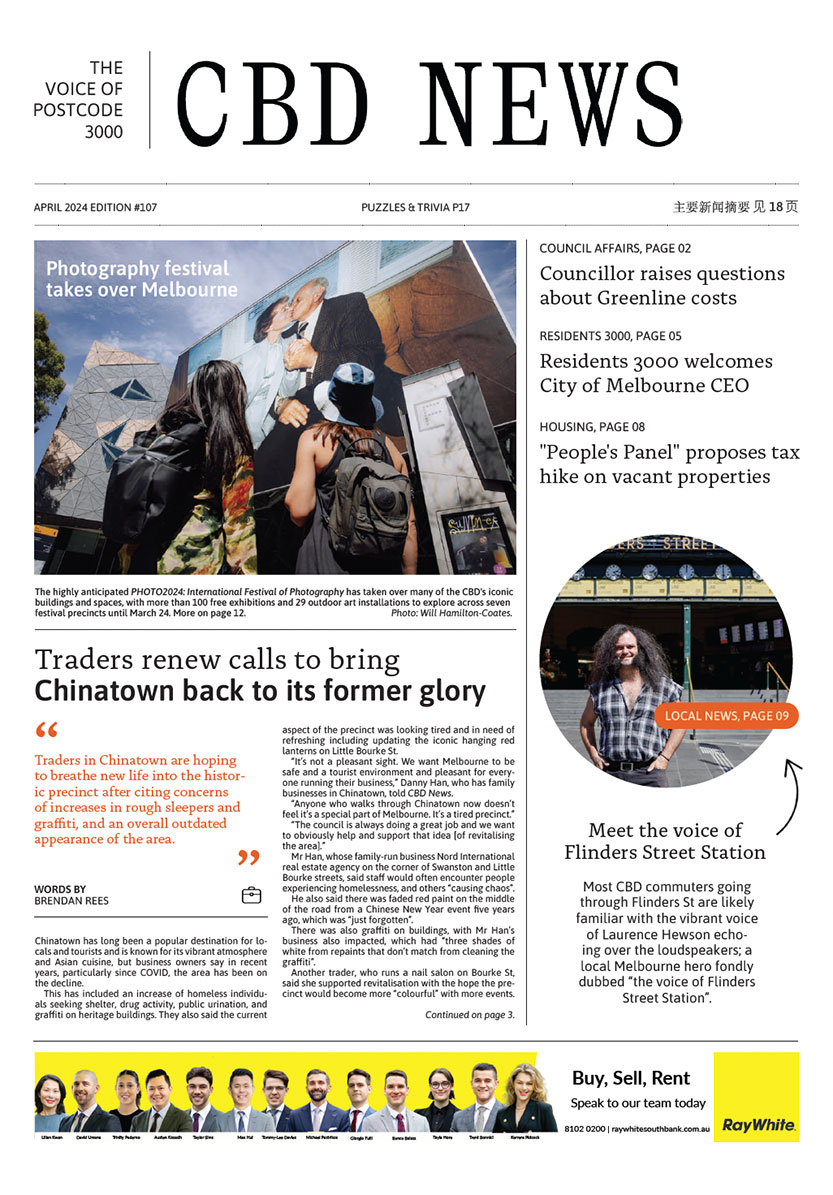ACT UP in the city
By Meg Hill,
“Being a young gay boy from Adelaide, landing in Melbourne in the 1990s was very exciting,” Brenton Geyer told CBD News.
“It was a period of cultural explosion.”
But the ‘90s wasn’t all fun for the LGBTI community; Australia was still experiencing an AIDS crisis.
ACT UP – the AIDS Coalition To Unleash Power – was formed in New York in the late ‘80s as a political and activist response to the AIDS pandemic.
Branches spread throughout the world. Melbourne’s was launched in 1990 with a founding statement that opened: “It is time for people living with HIV/AIDS and their friends to speak up.”
It was the same year that Brenton moved cities.
“I moved from Adelaide and I wanted to find a community. The gay scene was really exploding, and I jumped into that,” he said.
Brenton joined the (then-emerging) Midsumma Festival and ran a design and marketing agency from Majorca House in Flinders Lane.
“We housed Midsumma, and we went on to house other small community groups such as the Melbourne Gay Lesbian Film and Video Festival, as it was then called – now it’s the Melbourne Queer Film Festival,” he said.
“And we also took in ACT UP under the banner of the Queer output that I thought was essential to be a well-rounded Queer boy at the time.”
“We wanted to be involved in everything we could, culturally as well as in an activist sense.”
So, Brenton’s office on Flinders Lane acted as an administrative base for the activist group.
“It was really just a telephone and a fax machine, but we had a kind of Queer hub going on there and we’d use it as a base to set up activity and campaigns.”
Throughout the ‘90s, ACT UP ran a string of protests and stunts through the CBD and inner-city.
There were rallies at City Square, “zaps” outside homophobic clothing stores, die-ins outside Flinders Street Station, and clandestine stunts.
Flinders St die-in: photo courtesy of the John Willis Collection, Australian Lesbian and Gay Archives.
A protest outside Melbourne’s Olympic Bid Headquarters on Spring St demanded “public health before public spectacle”. A poster told Melburnians:
“The Victorian government is happy to gamble millions of taxpayers’ dollars on the long shot of getting the 1996 Olympics, but it is refusing to wager one additional cent on preventing the certain spread of AIDS.”
And overnight on June 5, 1991, ACT UP activists were busy in multiple locations.
The front entrances to the Commonwealth Health Department on Lonsdale St were glued shut, and Southbank’s floral clock was “subverted”.
“The big protest, for me and I think for a lot of Melburnians, was the replacement of the flowers in the floral clock with wooden crosses to represent all those who had died of AIDS,” Brenton said.
“That was a clandestine operation, overnight, that got a lot of media attention – good and bad.”
Brenton now works for Living Positive Victoria, an organisation dedicated to advocacy, support and empowerment of those living with HIV/AIDS.
He said ACT UP won many of its demands around healthcare, funding and research – but there’s still plenty of stigma that needs challenging.
“We want to lessen the panic that did exist 30 years ago," he said
"We want to guide the community with the understanding that it’s a manageable chronic illness much like diabetes is, and that those on effective treatment cannot pass the HIV virus on."
Brenton will be joined by New York ACT UP activist Dr Monica Pearl on January 24 to examine the cities’ ACT UP experiences as part of this year’s Midsumma Festival: midsumma.org.au/whats-on/events/in-conversation-act-up/

Backloading across borders with Transcorp – navigating interstate moves with ease






 Download the Latest Edition
Download the Latest Edition